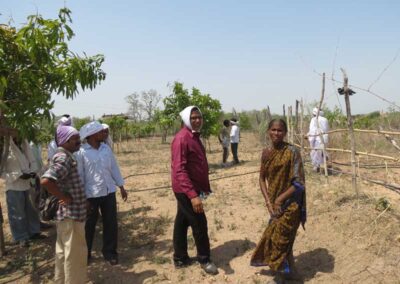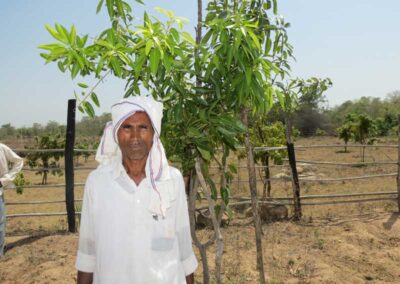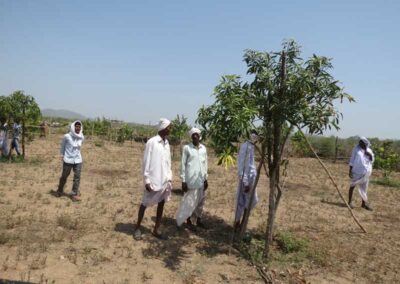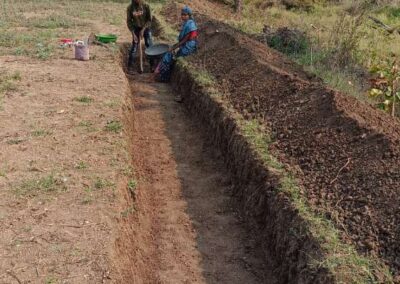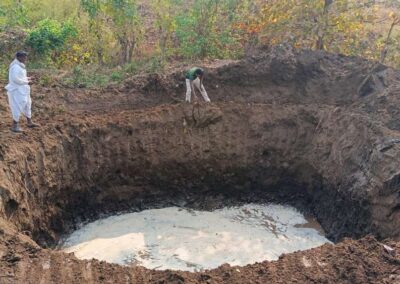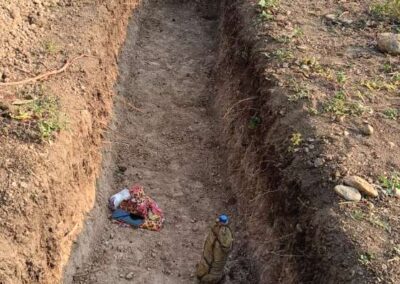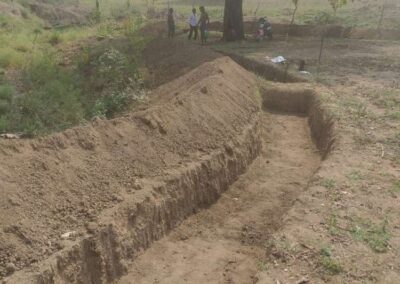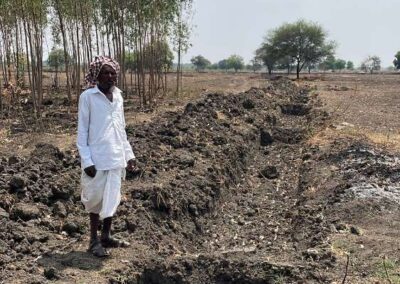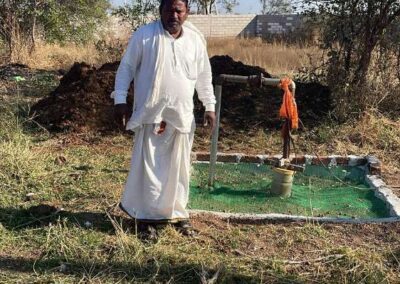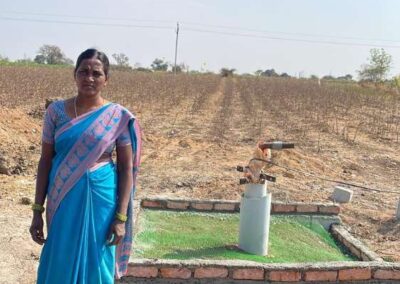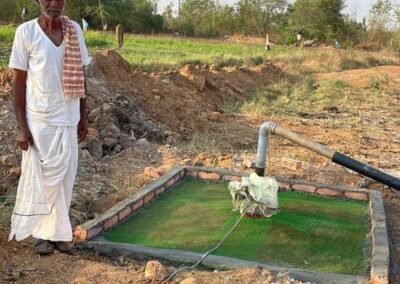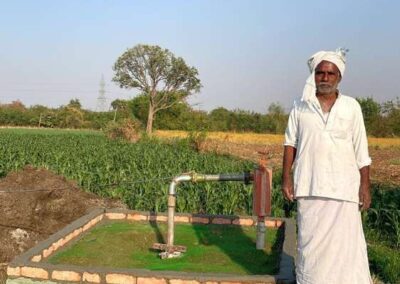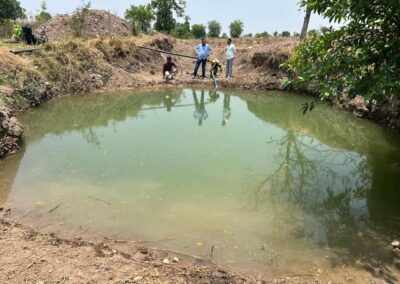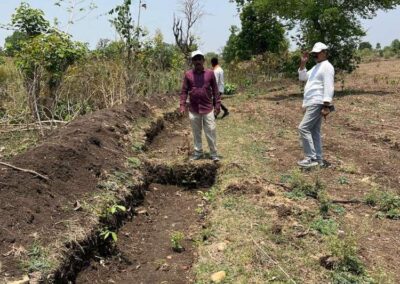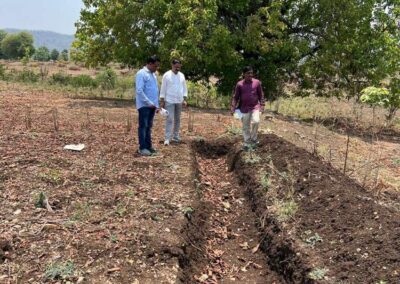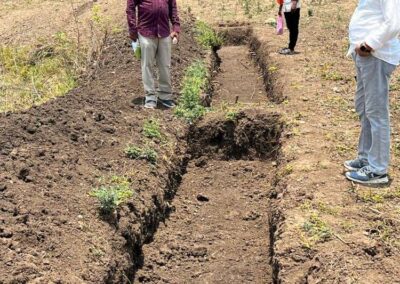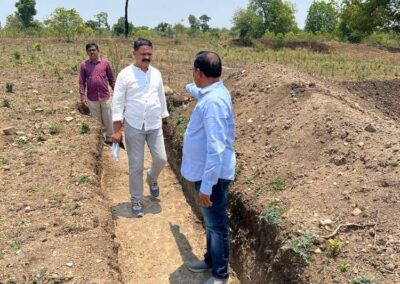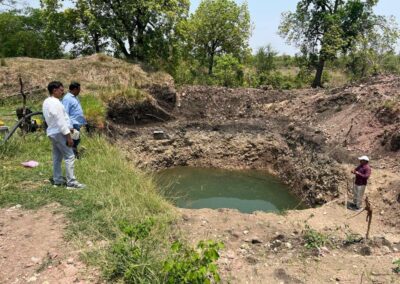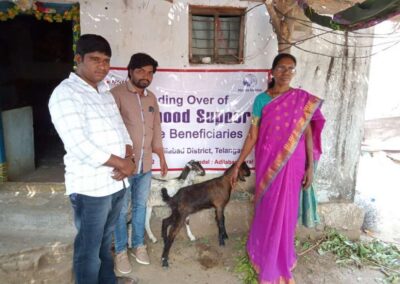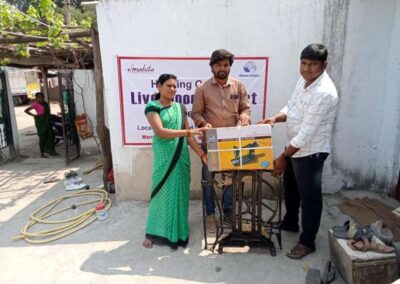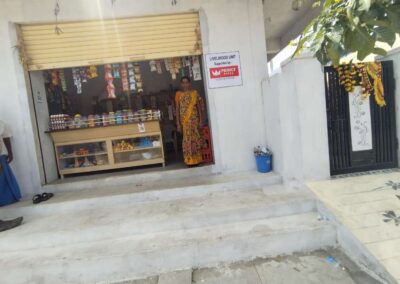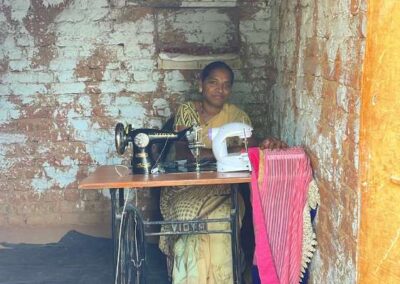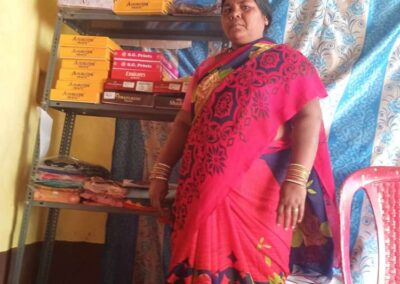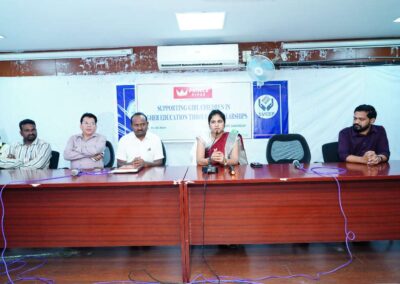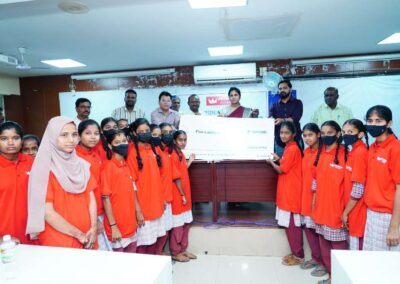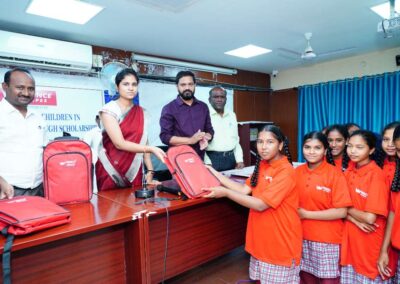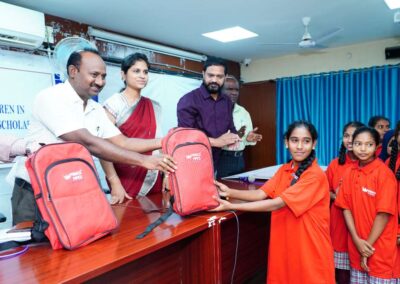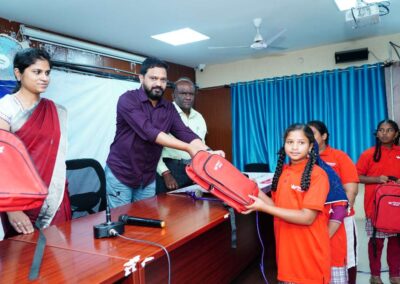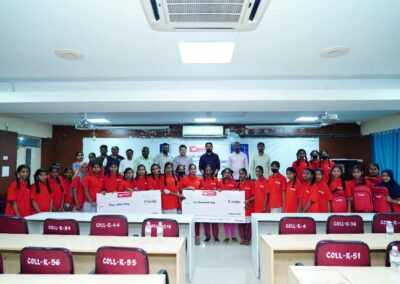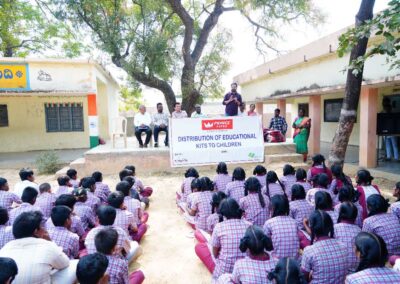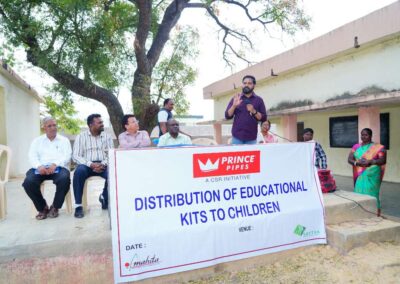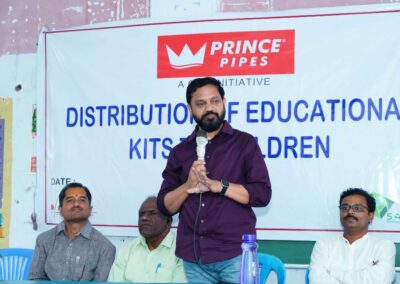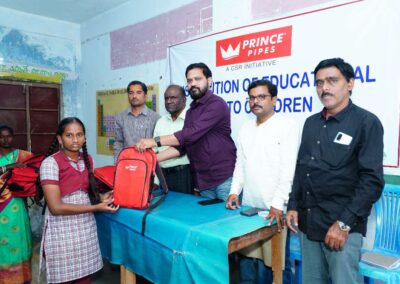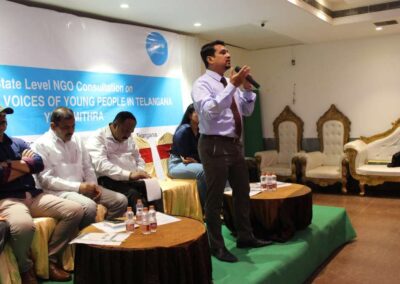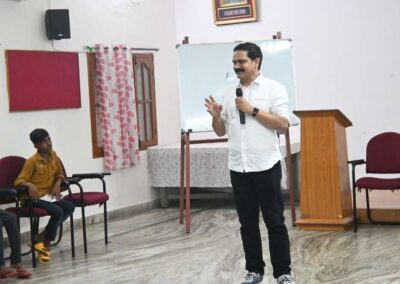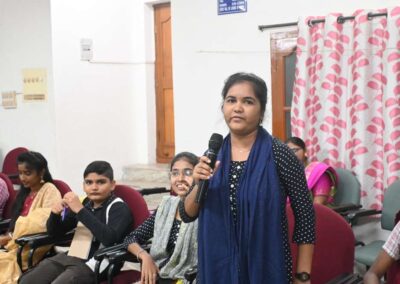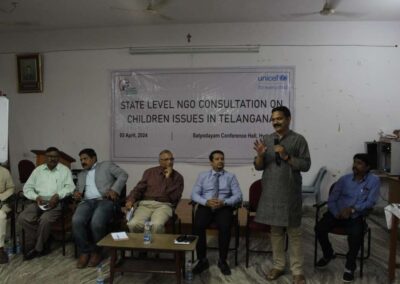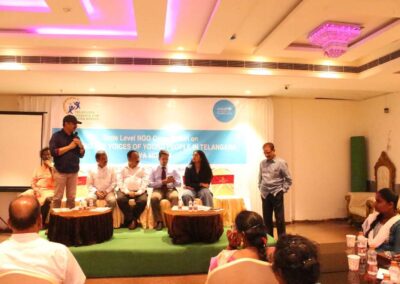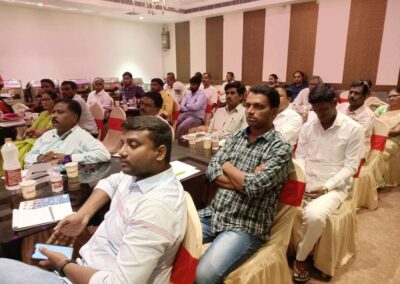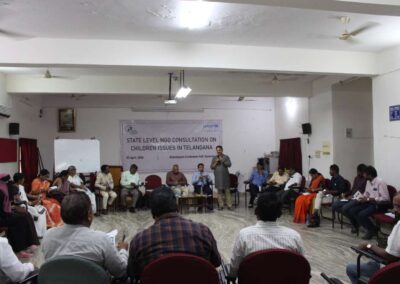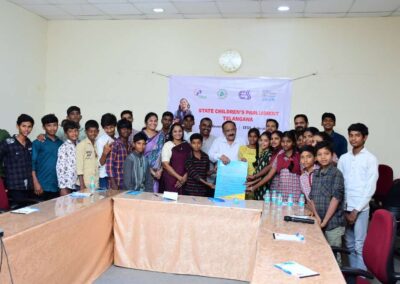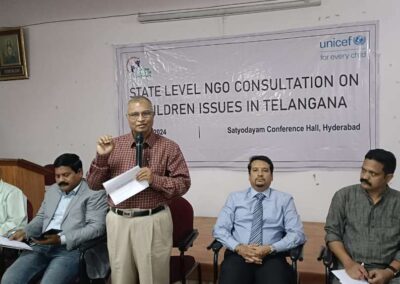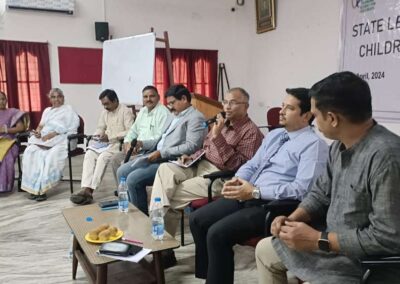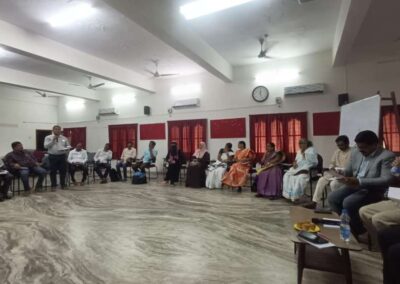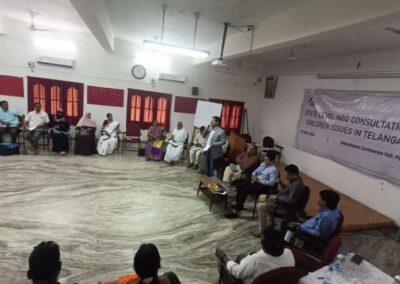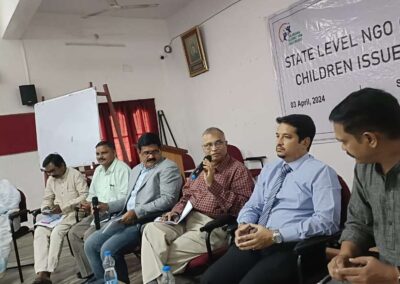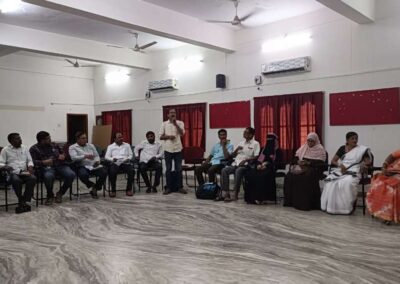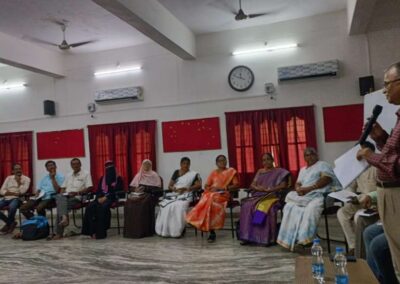WHAT WE DO – RURAL
Uplifting Rural and Tribal Communities
01
Woking with Tribal Communities in Adilabad, Telangana
MAHITA’s TDF Project in the Adilabad district has been instrumental in promoting rewilding and increasing forest cover in the region. The project’s core focus was the establishment of orchards, locally known as “Mathota/Wadi,” on degraded tribal lands spanning 500 acres. Each of the 500 selected tribal families was supported in the horticultural development of a one-acre plot, where they planted 48 Mango and 33 Amla trees, along with border plantations of Teak, Custard Apple, and Drumstick trees.
This initiative not only provided a sustainable livelihood source for the tribal communities but also contributed to the restoration of degraded lands and the enhancement of biodiversity. The combination of fruit trees, timber trees, and multipurpose trees created a diverse and resilient ecosystem, attracting various species of flora and fauna.
Furthermore, MAHITA worked closely with the Maathota committee to ensure the survival and growth of the planted trees. Efforts were made to introduce high-value vegetable intercropping, Vermi Compost, and Magic compost production and application, promoting organic and sustainable farming practices. These measures helped improve soil fertility, water retention, and overall plant health, creating a more forest-like environment.
Additionally, the project focused on repairing and maintaining fencing, implementing soil and moisture conservation (SMC) works, and increasing water storage capacity. These activities contributed to the overall ecosystem restoration and resilience, ensuring the long-term sustainability of the rewilded spaces.
02
Conservation and Restoration
MAHITA’s initiatives in the Adilabad and Sangareddy districts have placed a strong emphasis on resilient ecosystems, conservation, and restoration. The Bela Watershed project in Adilabad district targeted the Kolam Tribal Community, focusing on water conservation and sustainable agricultural practices.
Through activities such as trench cum bunding on 25 acres of land, digging and deepening wells, and conducting training programs on sustainable farming, the project aimed to enhance water availability and crop productivity. These efforts not only benefited 163 individuals directly but also contributed to the long-term sustainability of the region’s ecosystem.
In Sangareddy district, MAHITA recharge the bore wells for 60 farmers, further increasing crop productivity and ensuring a stable water supply. This initiative will not only support agricultural activities but also contribute to the overall water conservation efforts in the area.
Moreover, the organization recognizes the importance of capacity building and knowledge dissemination. By organizing exposure visits and training sessions, MAHITA aims to enhance the understanding of water management and sustainable agricultural practices among local farmers and communities. This approach empowers individuals to become stewards of their environment, promoting responsible resource management and ecosystem conservation.
03
Rural Livelihoods
MAHITA’s efforts have been instrumental in driving localized production and consumption, while simultaneously boosting livelihood creation. The organization’s commitment to empowering rural women through livelihood skill development programs and entrepreneurial ventures is particularly noteworthy.
In Sangareddy district, the project aims to promote livelihood skill-building and financial literacy for 150 women, with a focus on supporting 100 of them in starting their own micro-enterprises across ten villages. This initiative not only fosters economic independence but also encourages localized production and consumption, reducing the reliance on external sources.
By establishing linkages with ongoing programs, MAHITA assisted 100 families in obtaining their entitlements, further strengthening their economic resilience and access to resources.
MAHITA’s approach to localized production and consumption extends beyond just economic empowerment. The organization recognizes the importance of preserving traditional knowledge and practices, as well as promoting sustainable livelihoods. By encouraging the cultivation of indigenous crops, the use of organic farming methods, and the production of traditional handicrafts, MAHITA is fostering a deep connection between communities and their local resources, promoting cultural preservation and environmental stewardship.
MAHITA’s multifaceted approach to rewilding, resilient ecosystems, conservation, restoration, and localized production and consumption has been transformative for the rural communities they serve. Through these initiatives, the organization is not only improving the lives of individuals but also contributing to the larger goal of sustainable development and environmental preservation.
04
Advancing Education and Promotion of Child Rights
Operating in 120 Adilabad villages and 90 government schools, Mahita addresses pressing issues like child labor through community partnerships. By engaging 6,500 children, 600 SMC members and stakeholders, we strengthen interventions to foster ownership over collective welfare.
Our multifaceted initiatives sustainably empower rural communities through an integrated approach targeting food security, skilling, access to entitlements, income generation, child development and educational advancement.
05
Advocacy and Networking with NGOs
Mahita promotes state-level networks known as the A.P. Alliance for Child Rights (APACR) and the Telangana Alliance for Child Rights (TACR). APACR is a consortium of 350 NGOs, networks, and individuals working on child rights issues in the states of Telangana and Andhra Pradesh. Mahita leads the NGO consortium in both states in the role of State Convenor.
Mahita facilitates the network in Telangana and Andhra Pradesh, playing a crucial convening role. Its advocacy initiatives are designed to provide clear-sighted inputs into local and state-level policies and action plans dealing with children’s rights and education. Mahita has also undertaken intensive advocacy efforts for policy changes on the issue of child marriage in both states. Additionally, numerous research studies have been conducted by Mahita to achieve its advocacy goals.

